Thanks to incentives and favorable conditions, business loan credit packages exemplify the bank's robust commitment to supporting small and medium enterprises in their journey of expansion and development.

Banks aligned closely with businesses.
In recent times, joint stock commercial banks have diligently researched and proposed numerous timely support solutions, thereby creating leverage for businesses to navigate challenges. Loan packages aimed at small and medium enterprises, designed to supplement working capital, have been consistently introduced by major banks such as ANZ, Techcombank, Vietcombank, and ACB, garnering significant attention from the business community. This initiative not only facilitates swift access to essential capital for business households and small traders, ensuring a stable cash flow for production development activities, but also offers enhanced motivation for effective expansion, bolstered by the preferential policies of banks.
Mr. Tran Ngoc Nam, a business owner in the wholesale coffee sector in Thu Dau Mot City, stated that maintaining and developing stable business operations hinges on access to loan capital. With the timely assistance from the bank's preferential loan package in recent times, I have been able to proactively expand production capacity, import higher-quality goods, and acquire new machinery, thereby enhancing both the quantity and quality of products for customers.
The preferential loan solution referenced by Mr. Tran Ngoc Nam is part of the credit package "New Journey, Living the Dream," which will be implemented by Vietnam Public Joint Stock Commercial Bank (PVcombank) starting in early 2025. This package offers a loan interest rate of just 3.99% per annum, with a maximum limit of up to 10 billion VND for customers seeking capital for production and business purposes.
An individual customer in the micro, small, and medium-sized enterprise (MSME) segment currently utilizing a production and business loan package at PVcombank, Ms. Tran Thanh Tra from Tan Uyen City, stated that the bank has provided optimal conditions for her to demonstrate her business income flexibly. Furthermore, the bank has facilitated the simplification of numerous procedures and documents, enabling the loan approval process to occur in the shortest possible timeframe.
A representative from Techcombank stated that to finance working capital for production enterprises, the current loan-to-value (LTV) ratio for enterprises classified by the bank as A is 80%, for those classified as B is 75%, and for enterprises classified as C or higher is 70%. Furthermore, Techcombank provides loans to address the maximum capital requirements of enterprises, with total short-term debt reaching up to 5 billion VND per customer.
This bank has notably relaxed the lending criteria. Consequently, enterprises rated C or higher according to QCA rating regulations—specifically, those with a revenue scale of less than 200 billion VND and a minimum operational history of 24 months, without any type 2-5 debt at Techcombank or other credit institutions in the past 12 months—will be eligible for this loan package. This condition is attainable for the majority of small and medium enterprises, aiming to bridge the gap between these businesses and the bank's ample capital, thereby providing them with opportunities for stronger and more sustainable growth. In addition to the straightforward working capital loan package, Techcombank also offers specialized credit packages tailored for the plastics and pharmaceutical industries, designed to address and support the unique challenges faced by each sector in the most effective and appropriate manner.
The banking system collaborates to provide support
Recently, during a discussion with businesses and business associations aimed at effectively implementing Resolution 68-NQ/TW of the Politburo regarding private economic development, Governor of the State Bank Nguyen Thi Hong noted that while credit for state-owned enterprises once dominated, the current ratio of outstanding private credit to the total economy now stands at 92-93%. This figure underscores both the growth of the private economic sector and the concerted efforts of the banking system.
Currently, small and medium-sized enterprises represent nearly 98% of the total number yet access less than 20% of the total outstanding credit within the banking system, while the outstanding credit of the private sector constitutes up to 93%. According to the Governor of the State Bank, the private economy is substantial but lacks strength; enterprises are predominantly small and micro-sized, exhibiting limited competitiveness, operational efficiency, management capabilities, and low labor productivity. Additionally, some enterprises provide information that lacks transparency. Governor Nguyen Thi Hong emphasized that enterprises must strive and demonstrate determination to address these identified limitations.
In relation to lending interest rates, State Bank Governor Nguyen Thi Hong recently stated that despite the rise in global interest rates, the banking sector has made concerted efforts to manage and regulate rates downward. Credit institutions have demonstrated a strong sense of responsibility and compassion by reducing interest rates to alleviate the challenges faced by businesses and individuals impacted by the Covid-19 pandemic, as well as by storms and floods, amounting to approximately 60,000 to 70,000 billion VND. Furthermore, the banking sector has introduced several credit packages, including loans for the aquaculture sector and home loans for low-income individuals. It is important to note that these loan programs are funded entirely by credit institutions, rather than the State budget.
“The significant implementation of streamlining the apparatus and amending the Investment Law, Bidding Law, and Real Estate Business Law plays a crucial role in reducing timeframes, thereby accelerating capital turnover. This will enable numerous businesses to access capital and facilitate a reduction in interest rates. Notably, the banking sector consistently demonstrates its commitment, continuing to support and collaborate with businesses and the public to actualize the Party and State's policy on advancing the private economic sector in the near future,” stated State Bank Governor Nguyen Thi Hong.
Governor of the State Bank of Vietnam, Nguyen Thi Hong, stated that the banking sector has devoted significant attention to guiding units within the system to effectively execute the principles outlined in Resolution 68. Furthermore, the banking sector anticipates that the Government will focus on directing the implementation of measures to enhance the loan guarantee policy for enterprises, thereby fostering the development of other segments within the financial market. Only through these efforts will credit for small and medium enterprises assuredly rise, leading to an increase in the credit turnover of the banking system and allowing credit capital to reach a greater number of enterprises. |
Reported by Thanh Hong – Translated by Vi Bao










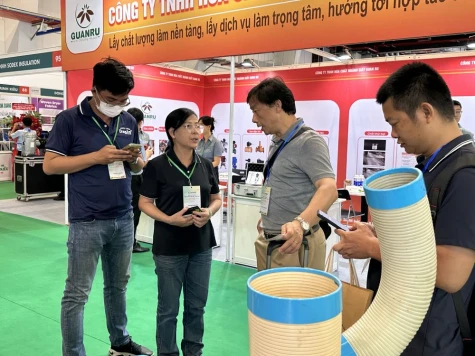
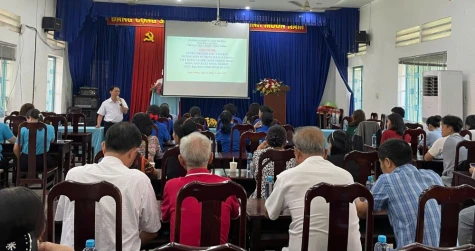



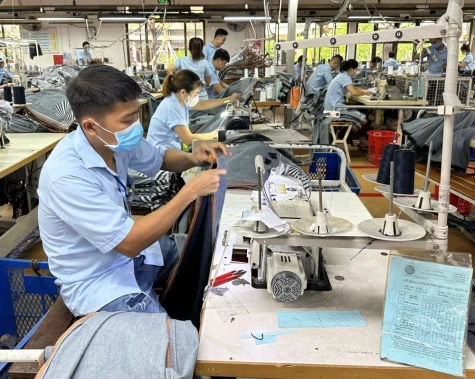



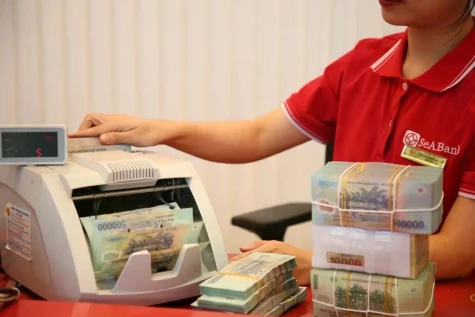

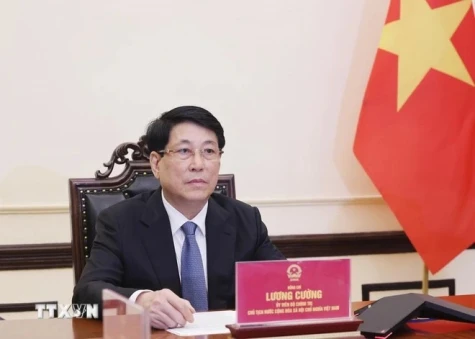





Xem thêm bình luận